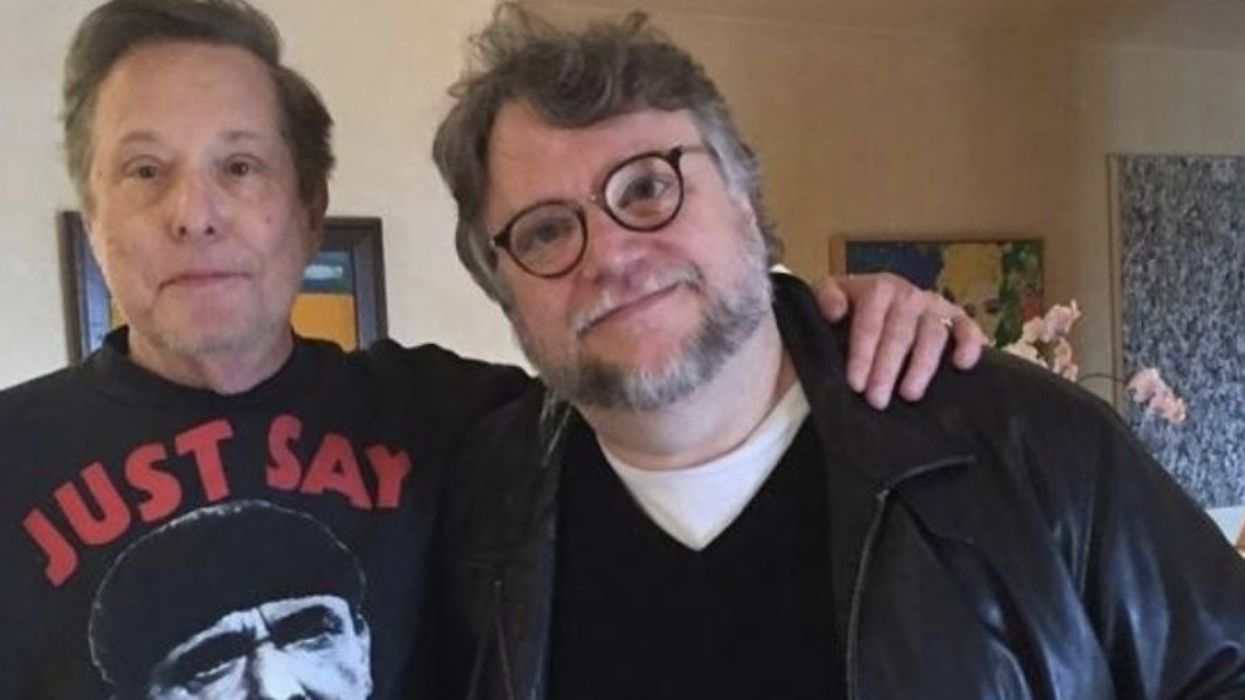What Did Guillermo del Toro Learn By Shadowing William Friedkin on His Final Film?
Imagine spending time on set with these two icons of cinema!

William Friedkin and Guillermo Del Toro
It would be hard to pick two more fun filmmakers to be around than William Friedkin and Guillermo del Toro. While making his final film, an adaptation of Herman Wouk’s play The Caine Mutiny Court-Martial, insurance mandated that the 87-year-old Friedkin have a shadow on the film who could finish it if he passed away while making it.
That shadow was none other than Guillermo del Toro, who basically sat and got to watch a master direct a tight courtroom drama.
It sounds like a dream gig.
Guillermo del Toro was always an admirer of Friedkin, and the two had recently struck up a friendship. del Toro said to IndieWire, “I told him that I would be honored to serve as an "insurance director," which means you are at hand by the director’s side and ready to step in if any emergency occurs—a policy required for directors over a certain age in order to be bonded and insured.”
He continued, “I said as much hoping it would be an open invitation for Billy just in case he considered climbing back into the saddle.”
Well, this move at least encouraged Friedkin to direct again, and they went to set to make The Caine Mutiny Court-Martial, which is available on Showtime now.
The Caine Mutiny Court-Martial Official Trailer | SHOWTIMEwww.youtube.com
It stars Kiefer Sutherland, Jason Clarke, Jake Lacy, Monica Raymund, and Lance Reddick. It was shot in just 14 days. While on set, del Toro had an amazing opportunity to glean as much info as he could from Friedkin. His approach really inspired him.
Speaking to IndieWire, del Toro elaborated, “He said to me, ‘This [is] about the actors and the words—and I have to service that."
After that mantra, del Toro continued, "This is a work by a Pulitzer Prize-winner and I am not gonna get in the way. He knew he had a very limited budget and time, and, within that, he demanded 100 percent, and he did so 100 percent of the time. He changed the sets down to the last possible minute and pushed his crew but always for a good reason: He would find a painting or a prop distracting and he wanted it out or changed.”
This obsession with detail and work is what allows you to have 14 days to shoot, you get the camera and sets perfect, then layer in the performances.
According to del Toro, “That was the main goal: not a career booster, not a power play, not an ego trip. He was the most collegiate, convivial, and crew-loving director but was also willing to push everyone to always be on their toes—this lesson I will carry with me forever.”
I think that's something we can all take away from this story. No egos, just a willingness to give everything you have to tell a story the right way.
If this story was inspiring, check out del Toro and Friedkin in conversation on SoundCloud.
Source: IndieWire
- Who Are the 66 Best Directors of All Time? ›
- Tarantino, Scorsese, and More Pick Their Favorite Horror Movies ›











